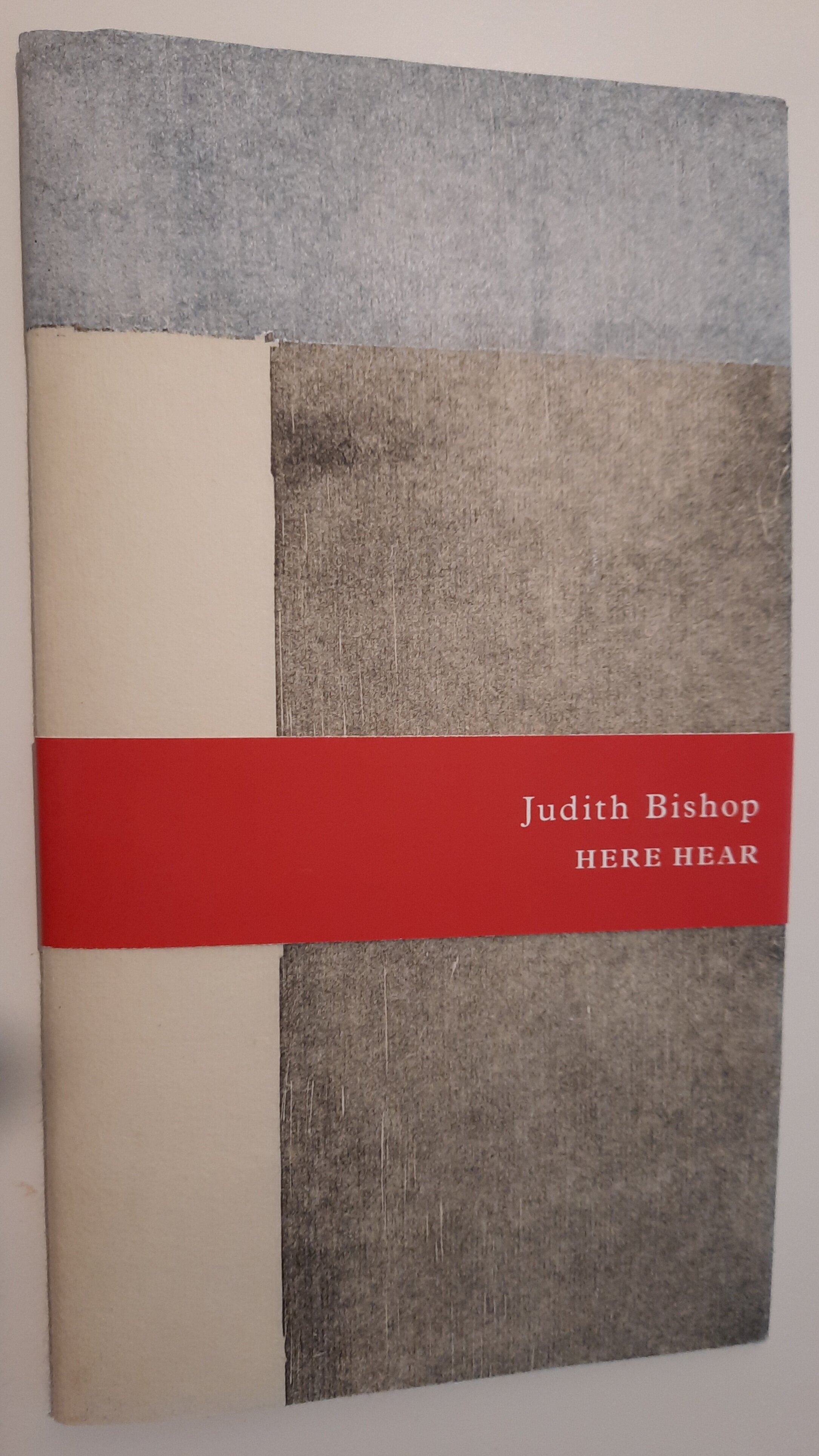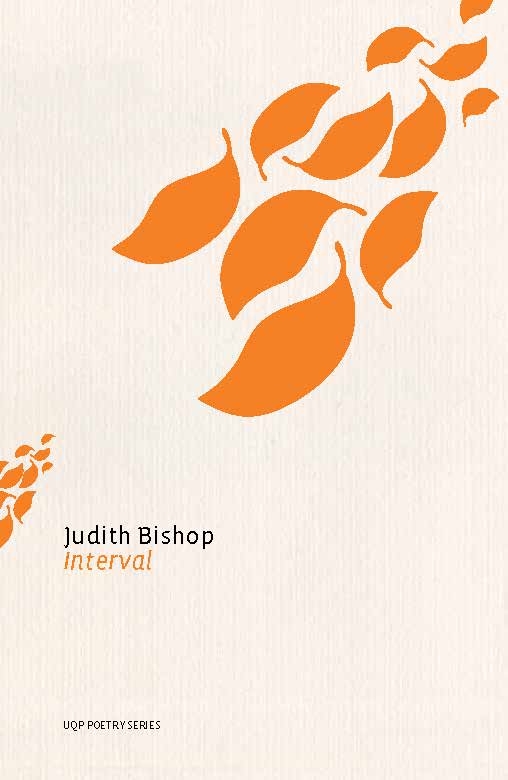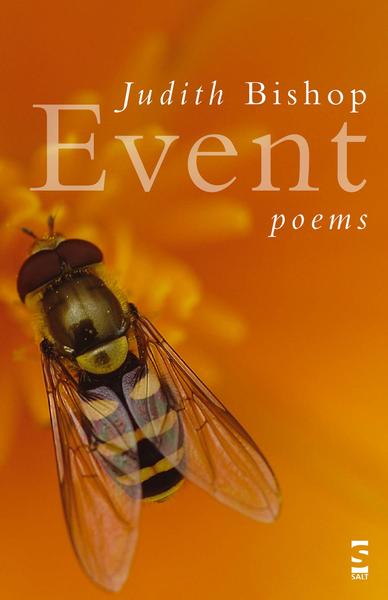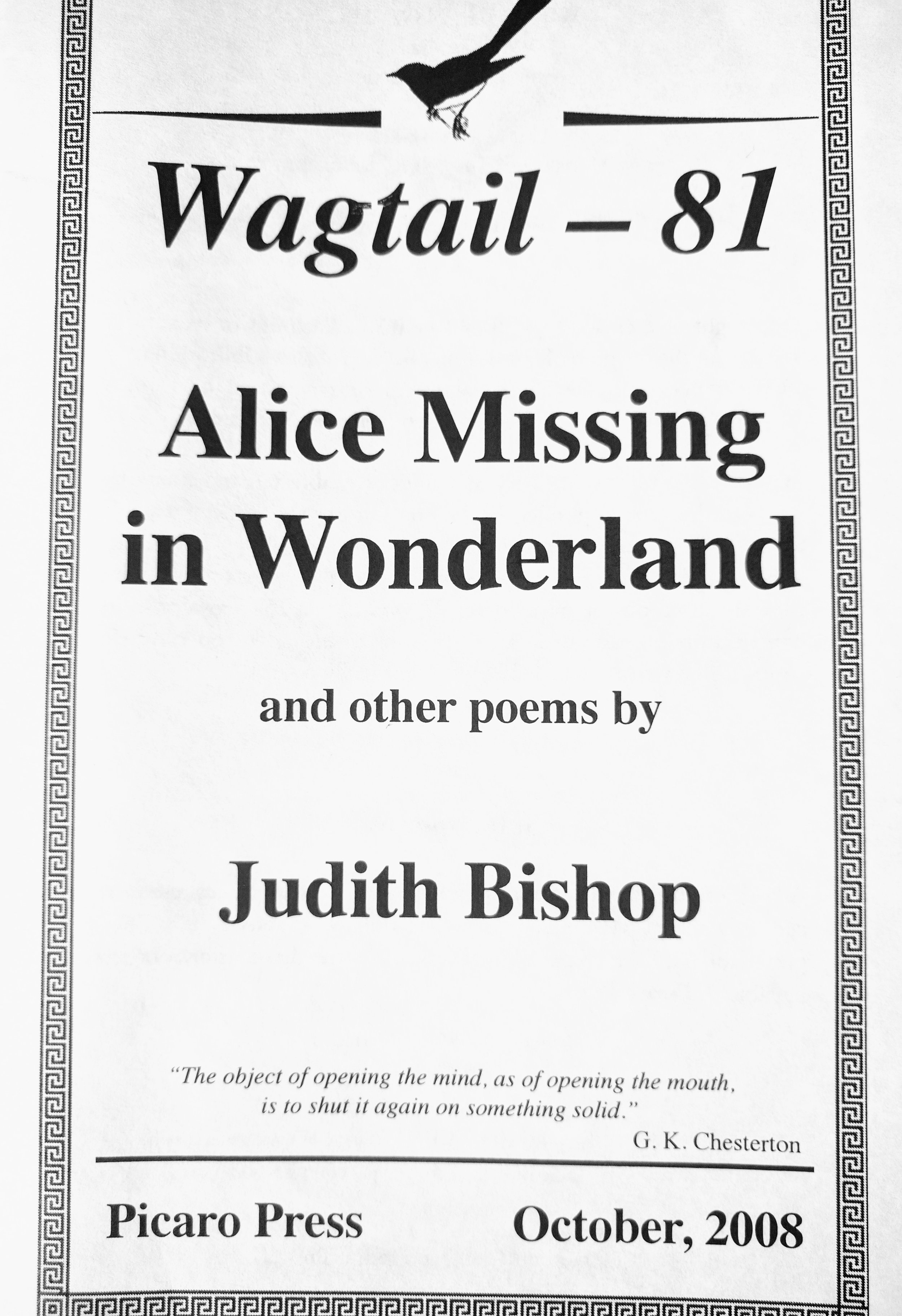HERE HEAR (2022)
New chapbook published in 2022 by Gazebo Books (Life Before Man) in limited edition. Available from Douglas Stewart Fine Books.
INTERVAL (2018)
Now available online and from good bookstores (release date 26 February 2018):
https://www.readings.com.au/products/24393510/interval
http://www.betterread.com.au/book/interval-book-9780702260070.do
https://www.penguin.com.au/books/interval-9780702260070
http://www.uqp.uq.edu.au/Book.aspx/1458/Interval
https://www.bookdepository.com/Interval-Judith-Bishop/9780702260070
https://www.amazon.com.au/Interval-Judith-Bishop/dp/070226007X
https://www.booktopia.com.au/interval-judith-bishop/prod9780702260070.html
PRAISE FOR EVENT (Salt Publishing, 2007)
Available from:
https://www.saltpublishing.com/products/event-9781844712830
“[…] Bishop’s poems make you want to stand up and shout them aloud in a tempest, spurred by the knowledge that you would be speaking its elemental tongue. Event reads more like a mature work, a fourth or fifth collection; it is one of the best first collections of poetry published here since Wright’s The Moving Image in 1946.” - Jaya Savige, The Australian Literary Review, March 5, 2008.
‘Here is a remarkable poet, in whom delicacy of language equals fineness of perception. She sings “as if”, as though all barriers had vanished between self and the shimmering world. Lightness and modern pastoral pervade her cities, animated by birds, creatures of the spirit.’ —Chris Wallace-Crabbe
‘Judith Bishop is a poet of unusual delicacy, yet she can phrase aphoristic, even proverbial, knowledge with complete authority. Accordingly, she writes ‘if the gods weaken, we’ll be left alone on earth’ and ‘Don’t cough,…: only listen. This is how the gods speak.’ She is entitled to speak both for the gods and about them: her mind is extraordinarily refined. The coarsenesses of the world are confronted by clear-eyed analysis. Cortés’s conquest of Mexico, as seen by his Aztec amanuensis, Doña Marina, shares lyric presence with a strangely quiet pantheism elsewhere in the collection. Throughout, a wholly original voice makes itself heard.’ —Peter Porter
‘‘We attend frail breakings. Hymn/to insufficiency,’ says Judith Bishop in her dazzling debut, Event, a book that argues for an almost prayer-like attention to the details of a world that seems both our own and newly – thrillingly – strange: ‘error orbits error,’ the sacred routinely turns to ash, we betray ourselves and others equally. Against this backdrop, Bishop speaks to and for the human impulse to strive anyway, to ‘[search] for tenderness,’ for transformation if not transcendence – and yes, for joy: ‘joy, which meant a life, which meant/its ending, soon or later; which emboldened both of us —’ These are splendid poems indeed, whose intelligence, vision, and sheer beauty at every turn persuade.’ —Carl Phillips
"[Bishop's] poetry's quiet humility counts as one of its foremost attractions. An authentic and unsentimental belief in the capacity for tenderness between creatures lies at the heart of Bishop's writing." —Oliver Dennis, Times Literary Supplement.
“Her poetry is neither quite in tune with the times nor in conflict with them: certainly it is hard to think of any poet writing today whose work has even remotely similar qualities and preoccupations. […] The reader soon realizes that Bishop doesn’t simply prefer animals to human beings, as D.H. Lawrence or Marianne Moore did, but values them as points of reconnection to things we’ve lost. She views the whole of life – everything that has ever lived – as participants in the largest of conversations across time, the shared ‘event’ of being alive; the shadows, or residues, of past lives are almost as real to her as lives in the present, and the result can be a poetry of mesmerising intensity" — Oliver Dennis, Antipodes, vol. 26, no. 2, 2012, on Event.
This collection is an absorbing read, multi-layered and affecting. It contains poetry full of ideas but never strays from human experience. The desperate search for hope, joy and truth in the face of indifference and death is played out within recognisable landscapes, which Judith Bishop's language transforms and renews. Her poetic method is similar to what the human voice does at the end of 'Desert Wind': it 'knows how to bind whatever's still,/ and for long enough to touch.' If her poems bind, they do so temporarily. They don't freeze reality into settled meaning like a snapshot. They pause fleetingly, just long enough to touch. —Rob McKenzie, Stride Magazine.




